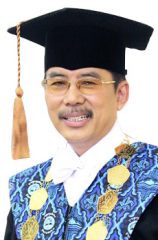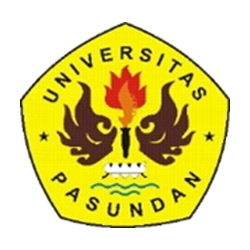In conversation with
Prof. Dr. Ir. H. Eddy Jusuf Sp., M.Si, M.Kom.
Rector | Universitas Pasundan

Higher Education Spotlight: What does education mean to you, personally?
Prof. Dr. Ir. H. Eddy Jusuf: How we as institutions develop human beings to a higher level of knowledge and awareness- from knowing little to knowing a lot.
How would you describe the identity of Pasundan University? What role do you play within the wider Indonesian agenda to focus on education and human resources?
Prof. Dr. Ir. H. Eddy Jusuf: Unpas was established in 1960, but our roots are in the Paguyaban Pasundan (Sundanese Association), which has been around since 1913. Our vision and mission are directly derived from those of Paguyaban Pasundan- standing up for the poor population and improving the level of education of the people of Indonesia. Since 1960 our major concern has been working out how to help citizens- local and nationwide- prosper.
Our vision also incorporates where we want the university to be in the future. We want Unpas to be an integral part of the international academic community by 2021, while continuing to support Islamic and Sundanese principles.
Our mission is to develop our international research, develop Sundanese culture, support human development, and international collaboration in research and public services.
We currently have 48 international collaborations with other higher education institutions. One of our collaborations, in public services, is with Chonbuk National University (CBNU) in South Korea. A mixed group of 40 students from CBNU and Pasundan went to Pangalengan, Bandung Regency for three weeks to collaborate on providing public services. Twice a year, Unpas and CBNU provide IT literacy training for junior high school students in Sukamanah village. Finally, students from Unpas will go to CBNU to learn about technology and culture in Korea.
We also have collaborations with Genki Gakuen and Hamamatsu University in Japan in the form of a homestay program.
Collaborations include scholarship arrangements between universities. CBNU provides a scholarship for three of our lecturers to study for their PhD there, while we provide scholarships for three of their lecturers to do the same here.
Higher education institutions have a responsibility to help support small and medium enterprises in their area, and encourage business. In what way is Pasundan working with local industries, for example the technology parks around Bandung, in order to do so?
Prof. Dr. Ir. H. Eddy Jusuf: We have 25 undergraduate programs here and most of our graduates work in the area surrounding Bandung, especially in the technology sector. We at Pasundan University encourage our lecturers to collaborate with industry. Again, we collaborate mostly with the technology sector, which of course centers around the technology parks, but we have also identified the aircraft industry as a leading sector that we want to focus on.
We have nine master’s and three PhD programs at Unpas. As one of our contributions to Bandung, we promote several local workers to study in these programs- for example the vice-mayor of Bandung studied a master’s program here. At a province wide level, our lecturers have contributed to West Java food security organisations, for example our Department of Food Technology developed a machine for refining flour from cassava. These machines are then exported to Fiji, where cassava crops are abundant but were previously exported in an unrefined state.
What efforts is Pasundan currently making to contribute to research and development, and which fields are you focusing on?
Prof. Dr. Ir. H. Eddy Jusuf: We support the research and development concerns of each individual faculty. This year the government approved funding for 57 research projects designed to help the surrounding area of Bandung and Indonesia in general. No other private institution in West Java has secured funding for so many projects.
How do you believe ASEAN, or MEA, will open doors for Pasundan to be more self-sustainable, for example by creating partnerships with industry? Do you believe that Indonesia as a country has taken advantage of MEA?
Prof. Dr. Ir. H. Eddy Jusuf: We have partnerships with seven higher education institutions in Malaysia, like UKM, UUM, and UTM- the most we have in any one country. Collaboration takes a number of forms, including student exchange, lecturer, and researcher exchange. Some of our law lecturers have also provided a translation service, from the Malaysian language into English.
I believe the MEA will lead to good things for Indonesia, especially economically. Each country in the MEA has their own identity and Indonesia as a country will strengthen from the cross-pollination of cultures and ideas this will provide. Also, I feel that our economy, our population, and our many indigenous cultures will be able to contribute a lot to the strength of all MEA nations. Maybe our language could become the official language of MEA, we are the largest of the member countries, after all.
If we were to return to Pasundan in five years, what would we see here?
Prof. Dr. Ir. H. Eddy Jusuf: Number one, in the next five years we aim to increase the total number of professors in the university from 35 to 75. We also hope to increase the number of doctors from 141 to 166.
We want to reach Indonesia’s highest classification for research excellence and introduce a doctor of medicine program. First we must set up a medical faculty, which requires building a teaching hospital. To achieve this we will be making use of our partnerships, like with Genki Gakuen, who will provide six specialised doctors to teach here at Unpas along with all necessary equipment.
How do you promote lifelong learning to your faculty, alumni, and students?
Prof. Dr. Ir. H. Eddy Jusuf: By providing real support to those who are making efforts to continue their education. For example, one of our associate professors is receiving our full support in his efforts to become professor. One of the requirements for becoming professor is to have been published in an international journal, and so we are providing the individual with the financial support needed to do so.
